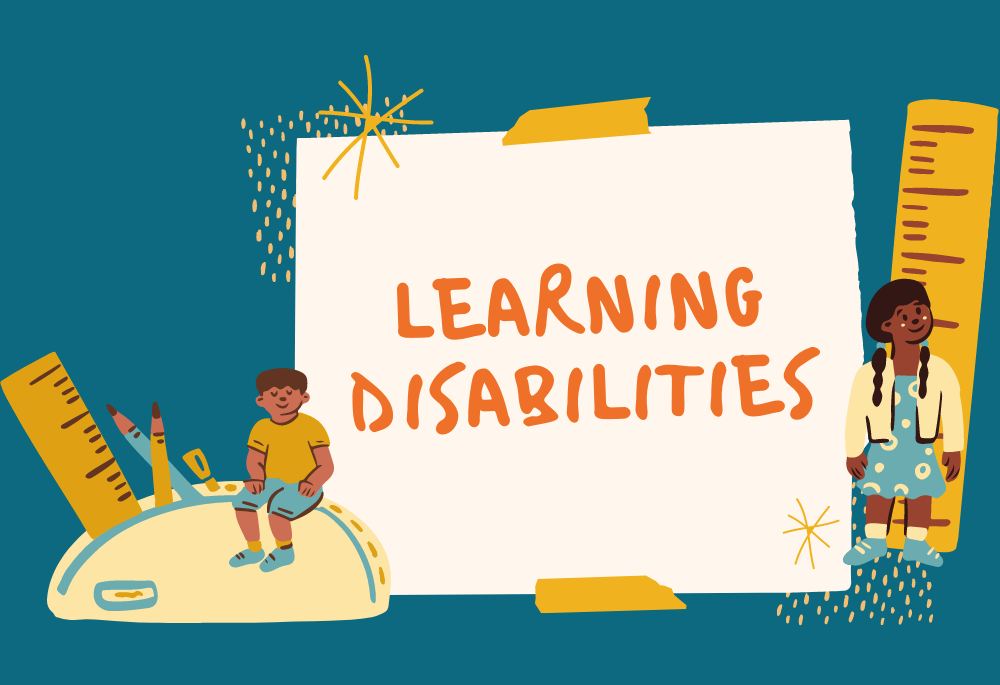Everyone knows we don’t all learn the same way. But some children, especially those with learning disabilities, need more support.
How do you know if your child has a learning disability?
PJ: Screening young children for developmental delays though a pediatrician or another child early years professional is the most recommended way to know if your child has a learning disability or delay. Even if you are not having concerns about your child’s development, a routine screening will help parents better understand the key milestones and celebrate their child’s progress. These screenings are also very effective in helping parents know what to look for next and determine whether follow-up steps are needed. It is important to identify children with delays or disorders in the critical early years, before they start school. Birth to age five is the most critical phase of human development and early intervention is key. “Ages and Stages” is the most common resource used by professionals.
To learn more visit: https://agesandstages.com/about-asq/why-screening-matters/
What are the most common ones?
PJ: Although there are many types of learning disabilities, a few of the most common ones are: Pervasive Developmental Delay (PDD), Attention Deficit Hyperactivity Disorder (ADHD), Auditory Processing Disorder (APD), Sensory Integration Disorder, Autism Spectrum Disorder (ASD), and Dyslexia.
How do you explain to a child that they have a learning disability?
PJ: The way you respond to your child’s disability will likely have an impact on the way your child views themself, so be sure to send a positive toned message that clearly acknowledges their challenges, while also helping them understand how they are still very capable with many attributes and strengths to offer the world. One good tip is to present the information about your child’s disability using simple language. Some children may also respond well to learning more about the science behind their disability. Try not to include your own opinions and be sure to stick to simple answers to their questions. If they want more information, they’ll ask more questions, or they may ask the same question again in a different way.
What should parents do for their kids with learning disabilities?
PJ: The first thing to do after they have had a professional assessment and diagnosis is to seek out early childhood intervention programs and resources. These can be found through various provincial and federal government health agencies, schools, and independent support organizations. For specific information, it is good to get a list of resources applicable to your child’s needs through your pediatrician.
What are schools doing for students with learning disabilities? What should they add to this programming?
 PJ: Schools often have a whole team of professionals who are there to support children with learning disabilities. Some of these might include Child Psychologists, Occupational Therapists, Child Development Specialists, Educational Assistants, and Speech and Language Pathologists. Each school usually will work with parents in developing an Intervention Plan (IP) that will assist in meeting as many of your child’s needs as possible. Many parents, teachers, and professionals find that it is also beneficial to include the use of additional supporting resources that are created to enhance social/emotional/development such as the Better Behaviour book series.
PJ: Schools often have a whole team of professionals who are there to support children with learning disabilities. Some of these might include Child Psychologists, Occupational Therapists, Child Development Specialists, Educational Assistants, and Speech and Language Pathologists. Each school usually will work with parents in developing an Intervention Plan (IP) that will assist in meeting as many of your child’s needs as possible. Many parents, teachers, and professionals find that it is also beneficial to include the use of additional supporting resources that are created to enhance social/emotional/development such as the Better Behaviour book series.
Why do so many learning disabilities go undiagnosed? Why are they diagnosed less often in girls?
PJ: Most often, unless a disability is obvious and quite significant, they go unnoticed. Many parents do notice some signs that something is not quite right but decide to justify or rationalize away the challenges as personality traits or quirks. It is also common for parents to assume their child is just a little behind and will undoubtedly grow out of it. When it comes to gender, there are often differences in how a disorder will present itself. It is for all these reasons that having professional developmental screenings are so important.
You’re diagnosed with a learning disability as an adult. What now?
PJ: There are many great resources available for adults as well. There are both in-home and community organizations that will assist adults with disabilities. The best way to contact them is through your healthcare provider. They should have the contact information for most of these services. Some online research might be helpful as well.
PJ Wright is the author of Better Behaviour, a set of picture books that inspire social skills, self-regulation, and empathy, and focus on important health / safety topics. PJ is a Child Development Specialist, an Early Childhood Educator, and a Special Needs/Therapeutic Program Developer.

